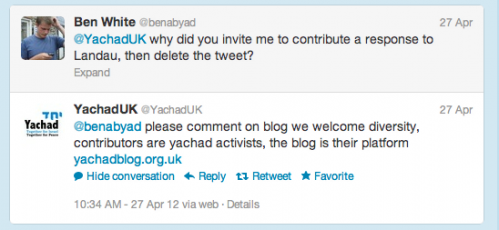1) The CST has produced a research briefing documenting the reactions of various UK-based groups to the death of the “blind Sheikh”, Omar Abdel Rahman, in prison in the US. One of those groups is ‘Cage’, which two years ago received considerable promotion on BBC platforms. Asim Qureshi of ‘Cage’ has also been interviewed on BBC programmes without his “particular viewpoint” having being clarified to audiences.
“On the day of Rahman’s death, Moazzam Begg, the outreach director of CAGE, posted a tribute on Facebook. Asim Qureshi, the research director of CAGE, ‘liked’ Begg’s post, using a ‘crying’ emoji.”
The full CST briefing can be found here.
2) The Telegraph has an interview with the chairman of the Charity Commission for England and Wales.
“Reports of alleged links between charities and terrorism or extremism have surged to a record high, the charity watchdog has warned.
The number of times the Charity Commission has shared concerns about links between charities and extremism with police and other agencies has nearly trebled from 234 to 630 in just three years.
The Commission also opened eight compliance cases and four formal inquiries into “allegations of abuse of charities for terrorist or extremist purposes” in 2015/16. […]
Earlier this year the Commission stepped in to stop the Joseph Rowntree Charitable Trust and Anita Roddick Foundation funding Cage because it did not match their “charitable objectives”.
Mr Shawcross said that Cage, a controversial human rights group, “was not a charity and there is no way in which Cage could represent any charitable purpose under British law”.
Last year, it emerged that Cage had used meetings on university campuses to encourage the “sabotage” of the Government’s official anti-extremism programme, Prevent.”
3) As explained by Dr Matthew Levitt in a briefing last month to the Senate of Canada, the abuse of charities is of course by no means confined to the UK.
“Much ink has been spilt in recent years on the more eye-catching forms of terror finance, such as the Islamic State’s takeover of oil fields and extortion of civilians under its control. The abuse of charity is a small percentage of the group’s revenues, but it is not an insignificant source, nor is it limited to the case of the Islamic State. On the contrary, cases of abuse of charity are on the rise over the past two years, and they reveal the involvement of a wide array of terrorist groups, countries, and financiers.”
4) As has been noted here on numerous occasions in the past, when reporting on the Boycott, Divestment and Sanctions (BDS) campaign against Israel, the BBC consistently refrains from informing its audiences what that campaign aims to achieve and in August 2015, we learned that the BBC considers the provision of such background information “not our role“. Our colleagues at UK Media Watch have posted a short video explaining the BDS campaign.



